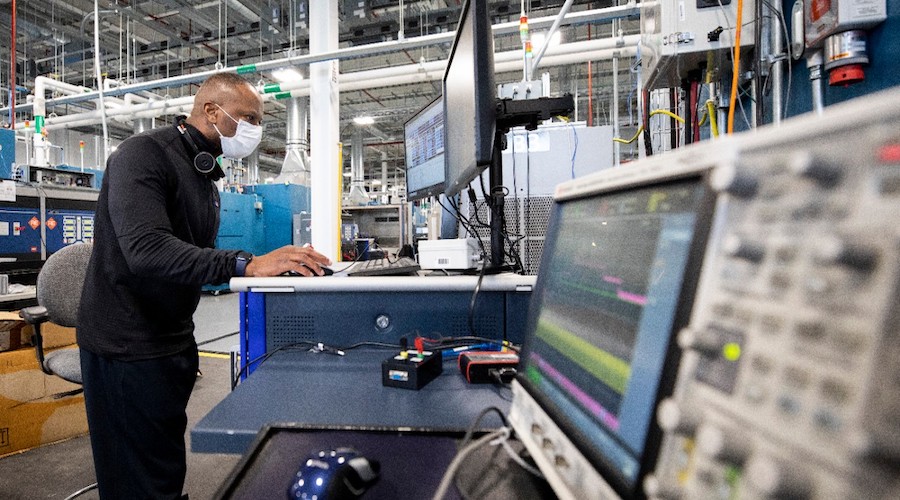Ford halts work on $3.5bn EV battery plant with CATL

Ford has pressed the pause button on its $3.5 billion battery plant in the northern US state of Michigan, only seven months after launching the project with China’s CATL.
The decision comes as the US top car producer faces a major strike that is also affecting the other two “Big Three” manufacturers, General Motors and Stellantis.
Ford’s facility has faced difficulties since the project was announced. The company’s partnership with the Chinese battery firm is being probed by Republican lawmakers on potential issues around American jobs, technology sharing and links to forced labour.
In a recent letter, the chairs of three US House of Representatives committees demanded Ford hand over documents related to its partnership with CATL and threatened to call on CEO Jim Farley to testify before Congress.
There is also uncertainty around how the US Treasury Department will interpret requirements in President Joe Biden’s signature climate package, the Inflation Reduction Act. The law is designed to withhold consumer tax credits for EVs made with a certain amount of China-linked materials in their batteries.
Beijing is conducting it own investigations into venture capital firms’ Chinese tech investments, announced after four US lawmakers travelled to Detroit to press the CEOs of Ford and General Motors Co. to cut their supply chains’ reliance on China.
Ford is targeting a production rate of 600,000 EVs a year in 2024, it said in July. It previously said it would reach that goal by the end of this year.
The auto industry industry is investing tens of billions of dollars to adapt factories to produce EVs and batteries in one of the sector’s biggest-ever manufacturing switch.
The hefty sums required to make these changes happen mean that the EV business so far remains unprofitable for many automakers.
Ford said it expects its EV business to lose about $4.5 billion this year.
{{ commodity.name }}
{{ post.title }}
{{ post.date }}




Comments